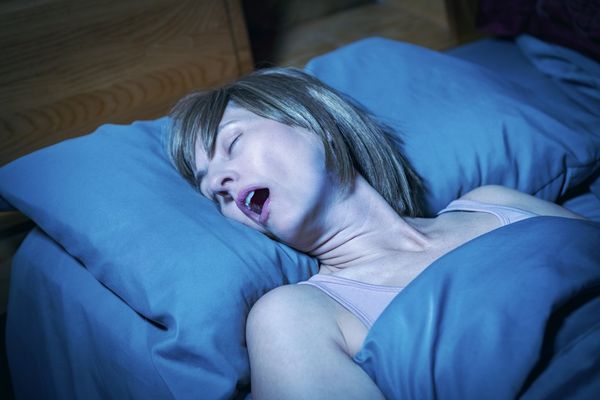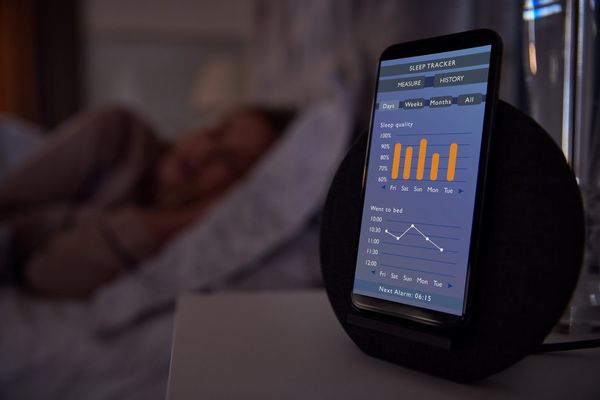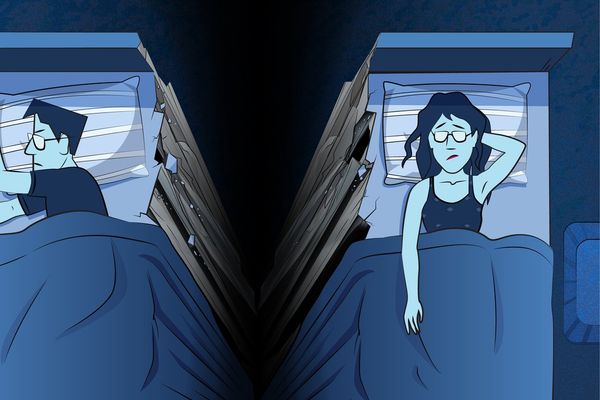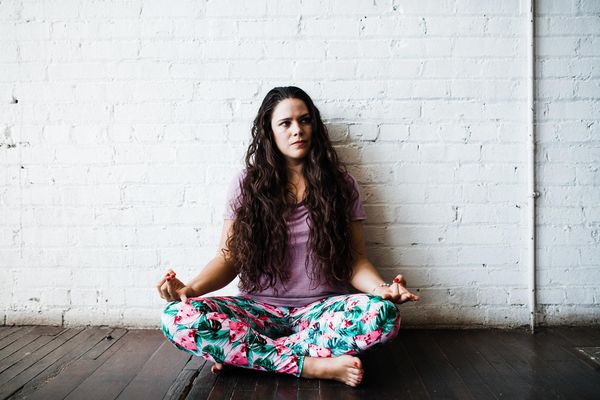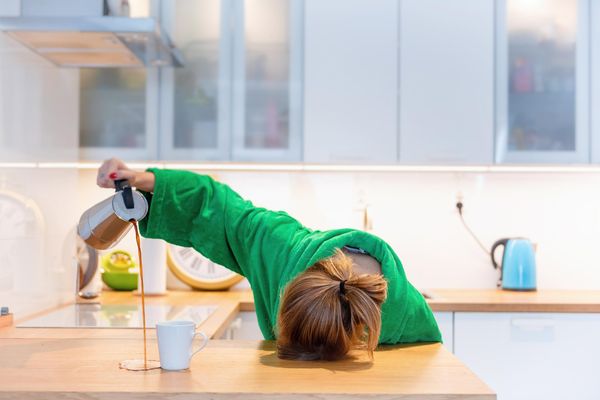By Samantha Parent Walravens and Ashley Snyder McCulloch
Can't sleep? If you're like many women, you find yourself counting sheep or staring at the clock in the wee hours of the night more often than you'd like. So what gives? With exhaustingly long and busy days, we should be collapsing into bed and sleeping soundly every night.
Yet, that isn't the case for millions of Americans. Sleep deprivation affects more than 25 percent of the adult population, with nearly 10 percent experiencing chronic insomnia, according to recent data from the U.S. Centers for Disease Control.
And, women are twice as likely as men to have difficulty falling and staying asleep, according to the National Sleep Foundation's Sleep in American Poll (2014). Women with sleep issues are also at greater risk than men for health problems, including heart disease, type 2 diabetes and depression.
We all know some of the common culprits that prevent us from getting a good night's sleep: drinking too much caffeine, watching a disturbing TV show right before bed or worrying about the busy days ahead.
Combine that with a world filled to the brim with stimulation—bright lights, blinking screens and cell phones buzzing day and night with incoming messages—and it's no wonder we have a hard time sleeping.
If you feel you've tried everything, you may want to find out more about these less-known factors sabotaging your sleep:
- Erratic sleep schedule. People who have irregular sleep-wake schedules, such as those who work varying shifts or frequently travel across time zones, have an increased risk for insomnia because their schedules weaken the signals from the circadian clock that regulate sleep, according to the Stanford Center for Sleep Sciences and Medicine. Having a regular sleep schedule (even on weekends) sets your body's clock and promotes better sleep. One caveat: if you don't fall asleep within about 15 minutes, get up and do something relaxing. Go back to bed when you're tired. Agonizing about not falling asleep will make it more difficult to nod off.
- No bedtime routine. Just like children, adults benefit from a bedtime routine that eases them into a restful sleep. Create a wind-down period that starts—and ends—at about the same time every night: dim the lights, play relaxing music and read something light. Hot baths are a wonderful way to help you relax before bed.
- Going to bed too full or too hungry. If you're hungry or stuffed, your discomfort might keep you up. Also, limit how much you drink before bed, to prevent disruptive middle-of-the-night trips to the toilet. If you fall asleep quickly but wake up a few hours later, this may be caused by blood sugar fluctuations. Try eating a high-protein snack before bed, such as a handful of nuts or a piece of low-fat cheese.
- Watching TV in bed. Although an estimated 9 out of 10 people watch TV for an hour before bed at least a few nights a week, research has shown that any kind of screen time (TV, Internet, phone) can disrupt your sleep. According to a study published in the journal Applied Ergonomics, screen time reduces your melatonin levels (the hormone that regulates sleep). The blue light emitted from electronic devices affects the brain's circuitry for light and wakefulness and stimulates you to stay awake longer than you should. Try turning your electronics off at least an hour before bed.
- Not getting enough sunlight. Exposing yourself to light is essential to getting a good night's sleep. Try to get some sunlight throughout the day, ideally beginningin the early morning. Right after you wake, go outside and take in the sun. Drink your coffee outside or near a window facing the sun. At work, go outdoors for a break.
- Stress. While we can't eliminate all stress, it is possible to manage it more effectively. Is your to-do list growing by leaps and bounds? Write down the most important items with an action plan for tackling them tomorrow. By making a list, you will find the mind space you need to truly relax.
- Light. "Light is a powerful regulator of the biological clock,” says Jordan Stern MD, sleep expert and founder of the BlueSleep Medical Center. When the lights are lowered, the brain releases sleep-inducing melatonin. For a better sleep, dim the lights before bed and use a low-wattage bulb in your bedside lamp. Consider using room-darkening shades, an eye mask and earplugs to mimic the long, dark night. Ideal sleep conditions are a cool, dark and quiet room.
- Not exercising during the day. Getting exercise during the day reduces the time it takes you to fall asleep and increases your total sleep time by 42 minutes, according to research from the University of Oklahoma Health Sciences Center. Just try to avoid exercising for at least four hours before bedtime.
- Afternoon caffeine. Many of us experience an afternoon lull, caused by the body's circadian rhythms. Throw in a heavy lunch and a long meeting, and you're definitely ready for a siesta. The problem with combatting afternoon fatigue with caffeine is that caffeine stays in your system for well over six hours. So a 4 p.m. latte will affect your ability to fall asleep at 10 p.m. Instead of caffeine, opt for an afternoon smoothie or a brisk walk outdoors, which will refocus your brain and reenergize your body. Remember, chocolate has caffeine in it, so be careful about eating chocolate for dessert.
- Alcohol. Because alcohol is a depressant, it will help you fall asleep—but it also sets you up for a restless night. Alcohol has been shown to reduce your REM sleep, the mentally restorative type of sleep. As the alcohol wears off, your body will begin to wake up. Because women metabolize alcohol quicker than men, they speed through alcohol's sedative effects and get to the restless, fragmented part of the night sooner. Alcohol is also a potent diuretic, so you can expect to wake up a few times to go to the bathroom.
Do your best to keep these sleep saboteurs at bay, and you'll improve your health and productivity. More importantly, you'll remember how truly restoring a good night's rest can be.



